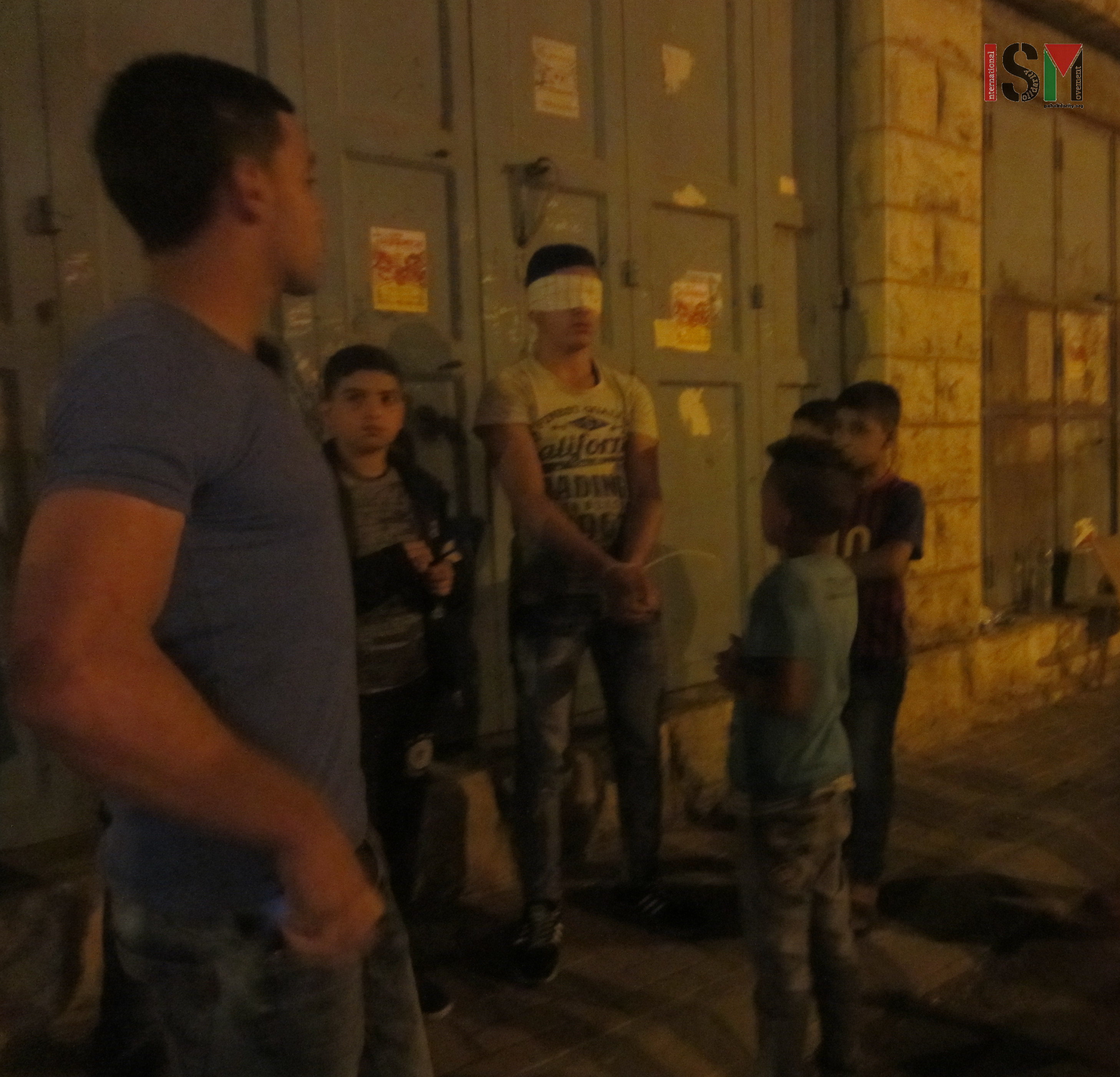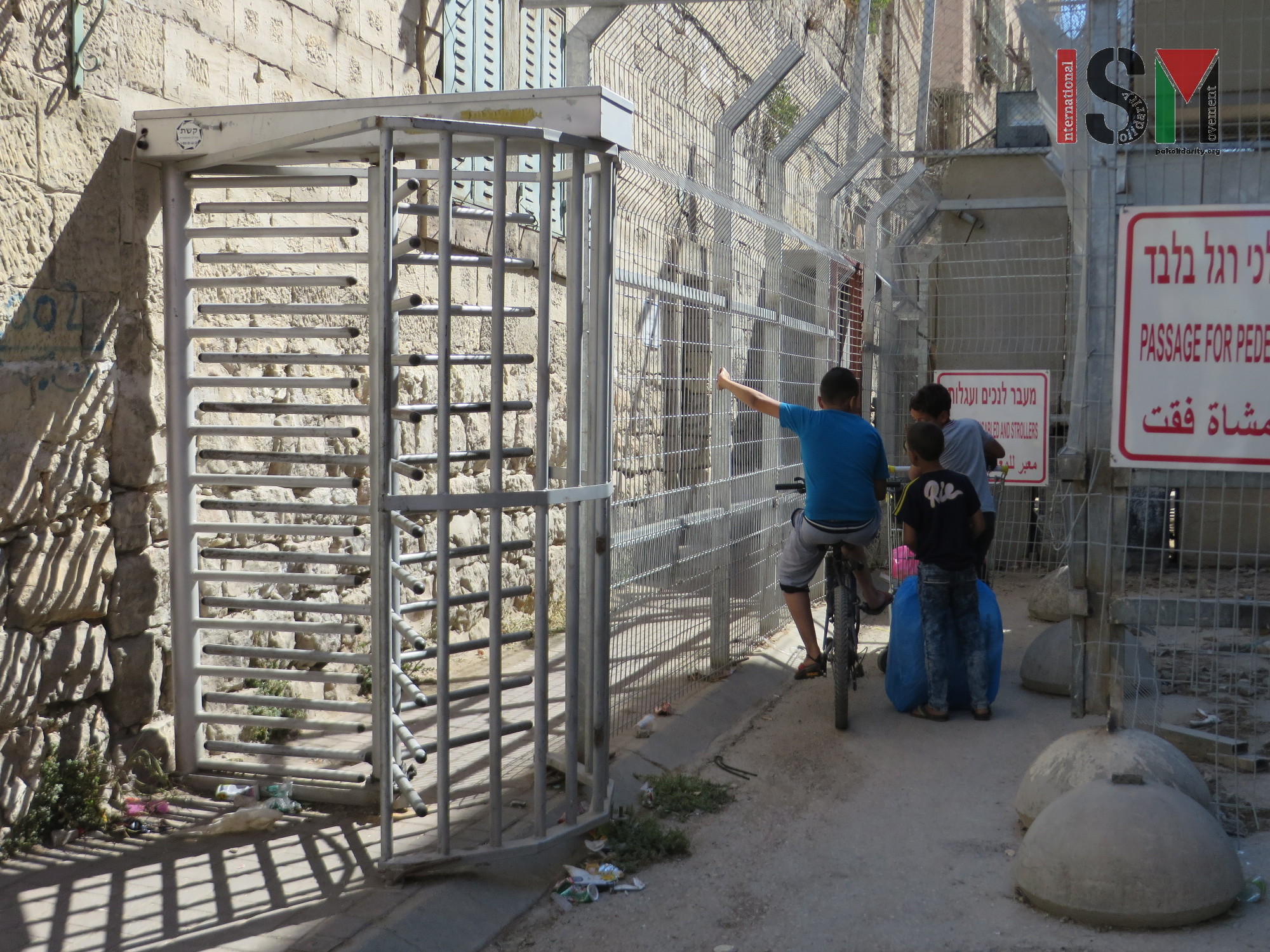Tag: Arrests
-
Israeli soldiers attempt to falsely arrest internationals
22nd September 2015 | International Solidarity Movement, Al-Khalil team | Hebron, occupied Palestine Last night Israeli soldiers threatened to arrest internationals, who were present during the arrest of 3 Palestinian boys in Tel Rumeida, al-Khalil (Hebron). After the 3 boys were brought to the military base, internationals went back into the house in Tel Rumeida.…
-
Three Palestinian boys violently arrested at night in Hebron
21st September 2015 | International Solidarity Movement, Al-Khalil Team | Hebron, Occupied Palestine Monday the 21st of August three boys were arrested in the Tel Rumeida area of Hebron, occupied Palestine. The boys were arrested at 8:45 pm and taken to the military base in Tel Rumeida. Two of the boys were arrested after allegedly…
-
Israeli forces targeting Palestinian children in al-Khalil (Hebron)
Everyday, Palestinian families get attacked by Israeli forces in their own homes. Sometimes they bang on the door in the middle of the night, scaring children and adults, ransacking the house. On some of these raids, both during the night and in daytime, Israeli forces randomly arrest family members and take them to an unknown…



